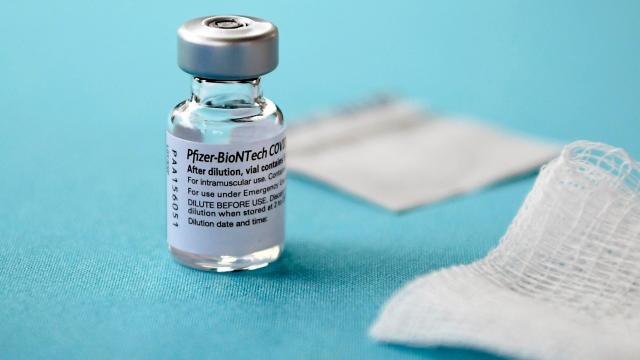On Monday, the U.S. Food and Drug Administration announced it would authorise the emergency use of the highly effective Pfizer/BioNTech covid-19 vaccine for children between the ages of 12 to 15. The vaccine is the first to be made available to the age group, though both it and Moderna’s similar mRNA vaccine are being tested for teens and younger children as well.
“The FDA’s expansion of the emergency use authorisation for the Pfizer-BioNTech covid-19 vaccine to include adolescents 12 through 15 years of age is a significant step in the fight against the covid-19 pandemic,” said Acting FDA Commissioner Janet Woodcock in a statement released by the agency. “Today’s action allows for a younger population to be protected from covid-19, bringing us closer to returning to a sense of normalcy and to ending the pandemic. Parents and guardians can rest assured that the agency undertook a rigorous and thorough review of all available data, as we have with all of our covid-19 vaccine emergency use authorisations.”
The clinical trial used to secure this new emergency use authorisation involved 2,260 children ages 12 to 15 in the U.S., who were randomly given two doses of the vaccine or a placebo. In total, 18 volunteers tested positive for the viral illness during the study’s length, all of whom were unvaccinated. In other words, the vaccine was found to be 100% effective at preventing illness and other outcomes like hospitalisation in these children. The vaccine also appeared to be well-tolerated, with no reported major differences in side effects compared to what’s already been documented with people ages 16 to 25.
The vaccine probably doesn’t completely protect teens from covid-19, given the small sample size of the study. But it does line up with the clinical and real-world data collected on the Pfizer and Moderna mRNA vaccines to date, which has found that both provide substantial protection against illness and infection. Last week, Moderna announced the preliminary results of their ongoing trial involving 12 to 17 year-olds; the data showed that their vaccine had 96% efficacy at preventing illness 14 days after the first dose.
Children are much less likely to experience serious illness and death from covid-19 than other age groups. But older teens are thought to spread the virus to others as efficiently as adults, while even younger children are still susceptible to rare but serious complications. Children may also be at higher risk of lingering symptoms after the initial illness has passed, much like adults who develop “long covid.”
According to CDC data, an estimated 190,000 children have been hospitalised due to covid-19 as of December 2020 — a number far higher than the estimated 50,000 hospitalised for the seasonal flu annually.
Some experts have also warned that herd immunity against covid-19 in the U.S. will be much harder to reach if children don’t have the opportunity to get vaccinated as well. And it’s looking almost certain that younger children will be given that shot. Prior to its announcement today, the FDA announced that it would hold an advisory meeting on June 10 to discuss a potential emergency use authorisation of covid-19 vaccines for children younger than 12 years old. Both Moderna and Pfizer are currently conducting trials with children in that age group.
